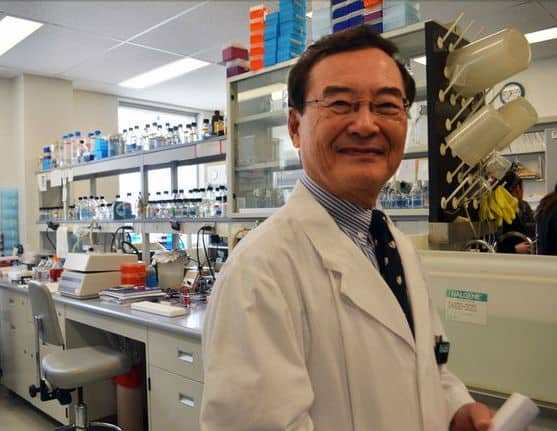

Dr. Chil-Yong Kang and his team at London-based University of Western Ontario are set to apply to the U.S. Food and Drug Administration for Phase II testing for their HIV vaccine, meaning that the vaccine has gotten through preliminary Phase I clinical trials with no ill effects observed on test subjects. Which may mean that an HIV vaccine is at least on the horizon.
Getting through the Phase I trial is a moment of cautious optimism, though, representing only the first hurdle towards the possible eradication of a disease which has killed 35 million people around the world, and which 34 million currently endure. Although a vaccine is not a cure, an effective vaccine, such as for polio, can be so effective as to effectively spell the end of the disease.
Phase I trials are meant to test the efficacy and safety of drugs or vaccines before they move on to Phase II, to be tested on a larger population. Even with the lack of negative side effects during Phase I, there is every chance that the vaccine could fail the final checks for safety and efficacy during that final trial.
All the same, its creators have faith in the drug. “I have no doubt about the Phase II clinical trials,” said Dr. Kang. “We already see some preliminary results showing that (the vaccine) will stimulate antibody production, so I have no problem with Phase II. As far as Phase III, God only knows.”
The Phase I trials, a randomized, observer-blind, placebo-controlled study administered between March 2012 and August 2013 to HIV-infected, asymptomatic (i.e. healthy) 18-to-50-year-old men and women, randomized to take the killed whole HIV-1 vaccine or placebo is the first of its kind in human trials to evaluate safety, tolerability and immune responses.
Western University’s press release highlights that to “boost antibody production in HIV-positive volunteer vaccines is highly encouraging, since it forecasts a success of the Phase II human clinical trial, which will measure the immune responses.” Part of the reason this vaccine proving effective would be a great leap forward in the struggle against HIV is that the virus has a tremendous capacity to mutate, which the “boost” in antibody production seems an encouraging indication that such a mutation stands a better chance at being matched and defeated than by previous attempts.
Supported by Sumagen Canada, the vaccine was administered to 24 HIV/AIDS positive patients while they were monitored for side effects during Phase I trials earlier this year in the United States. Vice-president of Sumagen Dr. Dong Joon Kim said, “These tests prove the safety and efficacy of the vaccine. It encourages us at Sumagen Canada to be on the long journey to reach the final goal for all of humankind.”
Sumagen Canada was created in 2008 specifically to work on Dr. Kang’s vaccine and is located in the Stiller Centre for Technology in Western’s Research Park in London, Ontario.
The Phase II trials will see the vaccine administered to 300-600 volunteers, not all of whom will be HIV/AIDS positive. The Phase III trials will involve the monitoring of subjects for approximately three years.
Dr. Kang participated in a Reddit “Ask Me Anything” this morning.
Leave a Reply
You must be logged in to post a comment.




 Share
Share Tweet
Tweet Share
Share




Comment